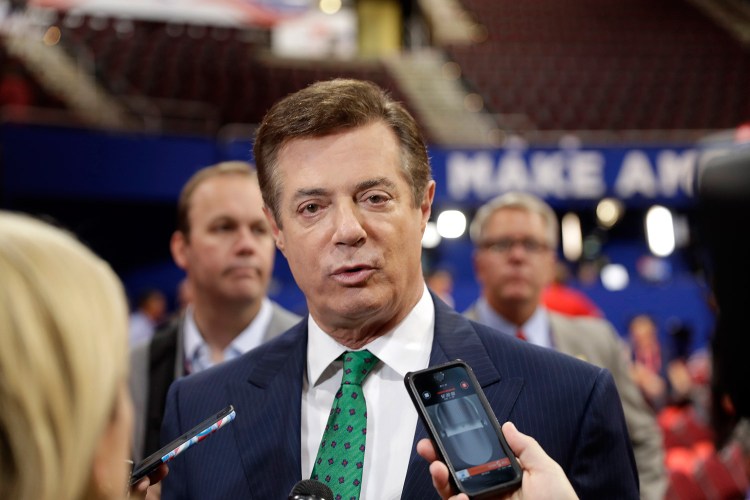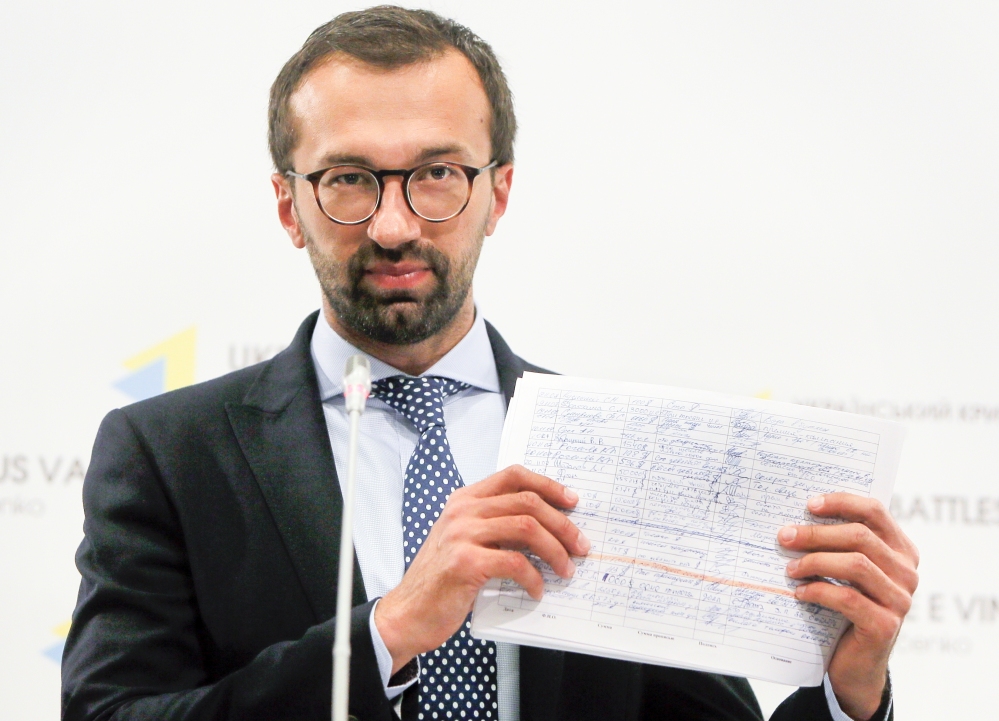MOSCOW – Once-secret accounting documents of Ukraine’s pro-Kremlin party were released Friday, purporting to show payments of $12.7 million earmarked for Paul Manafort, who resigned as Donald Trump’s campaign chairman following the revelations.
Manafort’s resignation comes a day after The Associated Press reported that confidential emails from his firm contradicted his claims that he had never lobbied on behalf of Ukrainian political figures in the U.S.
The AP found that Manafort helped Ukraine’s Party of Regions secretly route at least $2.2 million to two Washington lobbying firms. Manafort told Yahoo News that the AP’s account was wrong.
Ukraine’s National Anti-Corruption Bureau, which was set up in 2014 to deal with high-profile corruption cases, is studying the so-called black ledgers of the Party of Regions which investigators believe are essentially logs of under-the-table cash payments that the party made to various individuals.
The bureau on Friday released 19 pages of the logs which contain 22 line-item entries where Manafort is listed as the ultimate recipient of funds totaling $12.7 million. The bureau said, however, that it cannot prove that Manafort actually received the money because other people including a prominent Party of the Regions deputy signed for him in those entries.
Handwritten notes in a column describe what the payments were used for with entries such as: “Payment for Manafort’s services,” “contract payment to Manafort” dated between November 2011 and October 2012.
Manafort and business associate Rick Gates, another top strategist in Trump’s campaign, were working in 2012 on behalf of the political party of Ukraine’s then-president, Viktor Yanukovych.
People with direct knowledge of Gates’ work told the AP that, during the period when Gates and Manafort were consultants to Yanukovych’s Party of Regions, Gates was also helping steer the advocacy work done by a pro-Yanukovych nonprofit that hired a pair of Washington lobbying firms.
The nonprofit, the newly created European Centre for a Modern Ukraine, was governed by a board that initially included parliament members from Yanukovych’s party. The nonprofit operation subsequently paid at least $2.2 million to the lobbying firms to advocate positions generally in line with those of Yanukovych’s government.
Two co-founders of the European Centre for a Modern Ukraine, Yevhen and Vitaly Kolyuzhny, both former members of parliament, are listed in the released documents as recipients of funds on Manafort’s behalf.
Serhiy Leshchenko, a former investigative journalist turned lawmaker, on Friday published several pages from the ledgers in an article in the respectable Ukrainska Pravda newspaper.
When asked if he has evidence that Manafort actually received the money that had been earmarked for him, Leshchenko said investigators could prove that only if they question the people named in the ledgers. Leshchenko said Manafort had worked in Ukraine for several years and that the entries in the ledgers are the only explanation of how he could have been paid.
Some Ukrainian politicians who have been mentioned in entries released earlier this year have confirmed to local media that the books are genuine.
Leshchenko also said Manafort continued to work in Ukraine after Yanukovych fled and a new pro-European government stepped in and that Manafort consulted the Party of Regions for the 2014 parliamentary election and visited Ukraine last year.
Leshchenko also said that the ledgers contained the name of U.S. television personality Larry King, listed as having received an advance payment of $225,000 via Geller, a Party of Regions deputy.
On Friday, Ukrainska Pravda online newspaper published a photocopy of the line-item entry showing Geller’s signature dated Oct. 11, 2011, as recipient of funds for King.
When asked what King could have possibly been paid for, Leshchenko mentioned that King went to Kiev, the Ukrainian capital, in 2011 to interview Prime Minister Mykola Azarov, a member of the Party of Regions.
The AP sought comment from King’s representative, but there was no immediate response.
Send questions/comments to the editors.



